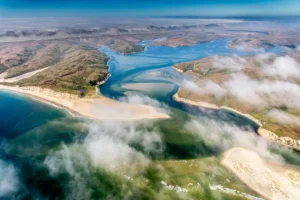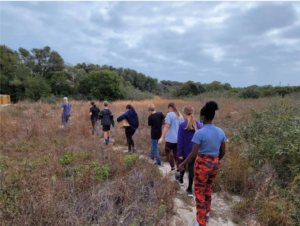The Ries Lab in the Department of Marine and Environmental Sciences at Northeastern University seeks a graduate student with training in geochemistry to contribute to federally funded research on the impact of alkalinity enhancement on calcareous biomineralization, to begin summer/fall 2024. Research will include employing a multidisciplinary approach to investigating the impact of seawater alkalinity on shell production, mineralogy, elemental chemistry, structure, function, and calcifying fluid chemistry of marine calcifiers.
The selected graduate student will receive training in global change research, carbonate biogeochemistry, invertebrate biomineralization, isotope geochemistry, and experimental design. Opportunities will also exist for meaningful engagement with industry partners. The graduate student will be based at Northeastern University’s Marine Science Center, located on the shores of Massachusetts Bay on the Nahant tombolo (13 miles north of Boston). The renovated MSC features a state-of-the-art flow through seawater facility, direct access to classic New England rocky shore intertidal study sites, and an in-house SCUBA program.
Highly motivated, creative, and discovery-oriented individuals with excellent writing and analytical skills are encouraged to apply. The successful applicant will have majored in the Earth Sciences and received training in geochemistry. Interested individuals should apply to the Ph.D. program at Northeastern’s Department of Marine and Environmental Sciences at https://enroll.northeastern.edu/apply/.
Applications will be accepted through December 1, 2023. Please direct specific inquiries to Prof. Justin Ries (j.ries@northeastern.edu).





